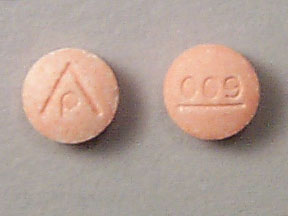
Aspirin 81 Coupons & Savings Card – Discount Prices from $5.41
Brand for: Aspirin
Aspirin is used to reduce fever and relieve mild to moderate pain from conditions such as muscle aches, toothaches, common cold, and headaches. It may also be used to reduce pain and swelling in conditions such as arthritis. Aspirin is known as a salicylate and a nonsteroidal anti-inflammatory drug (NSAID). It works by blocking a certain natural substance in your body to reduce pain and swelling. Consult your doctor before giving this drug to a child younger than 12 years. It is very important to keep this and all medication out of the reach of children. Aspirin is a common cause of poisoning in children. () Your doctor may direct you to take a low dose of aspirin to prevent blood clots. This effect reduces the risk of stroke and heart attack. If you have recently had surgery on clogged arteries (such as bypass surgery, carotid endarterectomy, coronary stent), your doctor may direct you to use aspirin in low doses as a "blood thinner" to prevent blood clots. Aspirin prevents blood clots by stopping certain blood cells (platelets) from clumping together.
Our Aspirin 81 coupons are free to use. You can print the coupon, email it to yourself, or receive the Aspirin 81 coupon via text message. To get your free discount, show the pharmacist your Aspirin 81 savings card which has the discounted coupon price. Use our filters below to edit the prescription box to match your needs. The Aspirin 81 prices will update based on your prescription needs. Above our Aspirin 81 coupons, you can change the location to see pharmacy prices in other areas. Our prescription discount card will update online with the specific pharmacy costs associated with your edits. Be sure to text, email, or print the Aspirin 81 savings card code that you need after editing the prescription box and location field. Show the discount card to your pharmacist before paying.
My prescription
Edit
81MG, Aspirin (90 Tablet Chewables)
Select pharmacy

Walgreens
$5.41
COUPON PRICE
Albertsons
$17.34
COUPON PRICEAspirin 81 savings card
Show this card to your pharmacist
Walgreens
$5.41
BIN
ID
PCN
GRP
015995
LHKPT834196
GDC
DR33
Powered by
Aspirin is used to reduce fever and relieve mild to moderate pain from conditions such as muscle aches, toothaches, common cold, and headaches. It may also be used to reduce pain and swelling in conditions such as arthritis. Aspirin is known as a salicylate and a nonsteroidal anti-inflammatory drug (NSAID). It works by blocking a certain natural substance in your body to reduce pain and swelling. Consult your doctor before giving this drug to a child younger than 12 years. It is very important to keep this and all medication out of the reach of children. Aspirin is a common cause of poisoning in children. () Your doctor may direct you to take a low dose of aspirin to prevent blood clots. This effect reduces the risk of stroke and heart attack. If you have recently had surgery on clogged arteries (such as bypass surgery, carotid endarterectomy, coronary stent), your doctor may direct you to use aspirin in low doses as a "blood thinner" to prevent blood clots. Aspirin prevents blood clots by stopping certain blood cells (platelets) from clumping together.
Our Aspirin 81 coupons are free to use. You can print the coupon, email it to yourself, or receive the Aspirin 81 coupon via text message. To get your free discount, show the pharmacist your Aspirin 81 savings card which has the discounted coupon price. Use our filters below to edit the prescription box to match your needs. The Aspirin 81 prices will update based on your prescription needs. Above our Aspirin 81 coupons, you can change the location to see pharmacy prices in other areas. Our prescription discount card will update online with the specific pharmacy costs associated with your edits. Be sure to text, email, or print the Aspirin 81 savings card code that you need after editing the prescription box and location field. Show the discount card to your pharmacist before paying.
Our Aspirin 81 coupons are free to use. You can print the coupon, email it to yourself, or receive the Aspirin 81 coupon via text message. To get your free discount, show the pharmacist your Aspirin 81 savings card which has the discounted coupon price. Use our filters below to edit the prescription box to match your needs. The Aspirin 81 prices will update based on your prescription needs. Above our Aspirin 81 coupons, you can change the location to see pharmacy prices in other areas. Our prescription discount card will update online with the specific pharmacy costs associated with your edits. Be sure to text, email, or print the Aspirin 81 savings card code that you need after editing the prescription box and location field. Show the discount card to your pharmacist before paying.
Aspirin 81 FAQs
Using the SaveHealth discount card, what is the price of Aspirin 81 without insurance?
Using the SaveHealth discount card, the price of Aspirin 81 without insurance is $5.41.
What is the price of Aspirin 81 at Walgreens?
The price of Aspirin 81 at Walgreens is $5.41.
